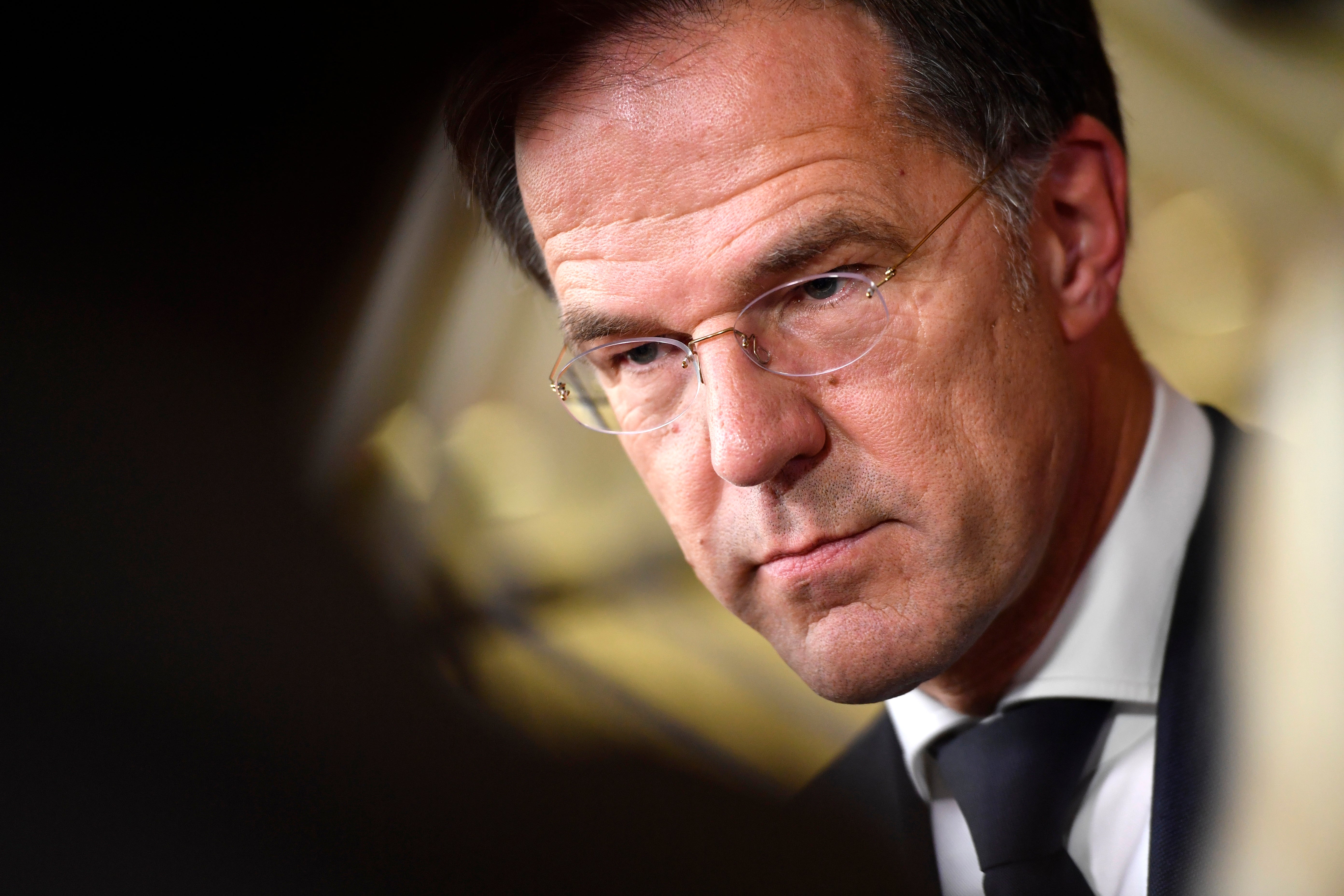Dutch PM meets lawmakers amid govt tensions over migration
Dutch Prime Minister Mark Rutte has met with lawmakers from his party to discuss their concerns about rising numbers of migrants seeking asylum in the Netherlands, amid tensions within his four-party coalition about how to tackle the issue

Your support helps us to tell the story
From reproductive rights to climate change to Big Tech, The Independent is on the ground when the story is developing. Whether it's investigating the financials of Elon Musk's pro-Trump PAC or producing our latest documentary, 'The A Word', which shines a light on the American women fighting for reproductive rights, we know how important it is to parse out the facts from the messaging.
At such a critical moment in US history, we need reporters on the ground. Your donation allows us to keep sending journalists to speak to both sides of the story.
The Independent is trusted by Americans across the entire political spectrum. And unlike many other quality news outlets, we choose not to lock Americans out of our reporting and analysis with paywalls. We believe quality journalism should be available to everyone, paid for by those who can afford it.
Your support makes all the difference.Dutch Prime Minister Mark Rutte met with lawmakers from his party Tuesday to discuss their concerns about the rising numbers of migrants seeking asylum in the Netherlands, amid tensions within his four-party coalition about how to tackle the issue.
The meeting followed the refusal of lawmakers in Rutte’s center-right People's Party for Freedom and Democracy to support legislation that could compel municipalities to offer accommodation to asylum-seekers. The party's opposition puts it at odds with the three other parties in the coalition.
“There is no crisis,” Rutte told reporters at the Dutch parliament after he held hours of talks with his party. He said he mainly discussed how to lower the number of migrants arriving in the Netherlands, which are at the highest level since 2015.
The growing number of arrivals has led to hundreds of migrants being forced to sleep outdoors in unsanitary conditions outside an overcrowded reception center for asylum-seekers in the northern Netherlands last summer.
Conditions were so bad that the Dutch branch of Doctors Without Borders sent a team there to help the migrants — the first time the aid agency had deployed in the Netherlands.
Rutte's coalition, made up of his party, two Christian-based parties and the centrist Democrats 66, has been in power since Jan. 10. It was sworn in almost exactly a year after Rutte's previous government resigned to accept political responsibility for a scandal involving the nation’s tax office that wrongly labeled thousands of parents who claimed childcare benefits as fraudsters.
The coalition, Rutte's fourth administration, has a narrow majority in the 150-seat lower house of Dutch parliament, but are in the minority in the upper house. Rutte is the Netherlands' longest-serving prime minister, having first taken office in October 2010.
___
Follow AP’s coverage of migration issues at https://apnews.com/hub/migration